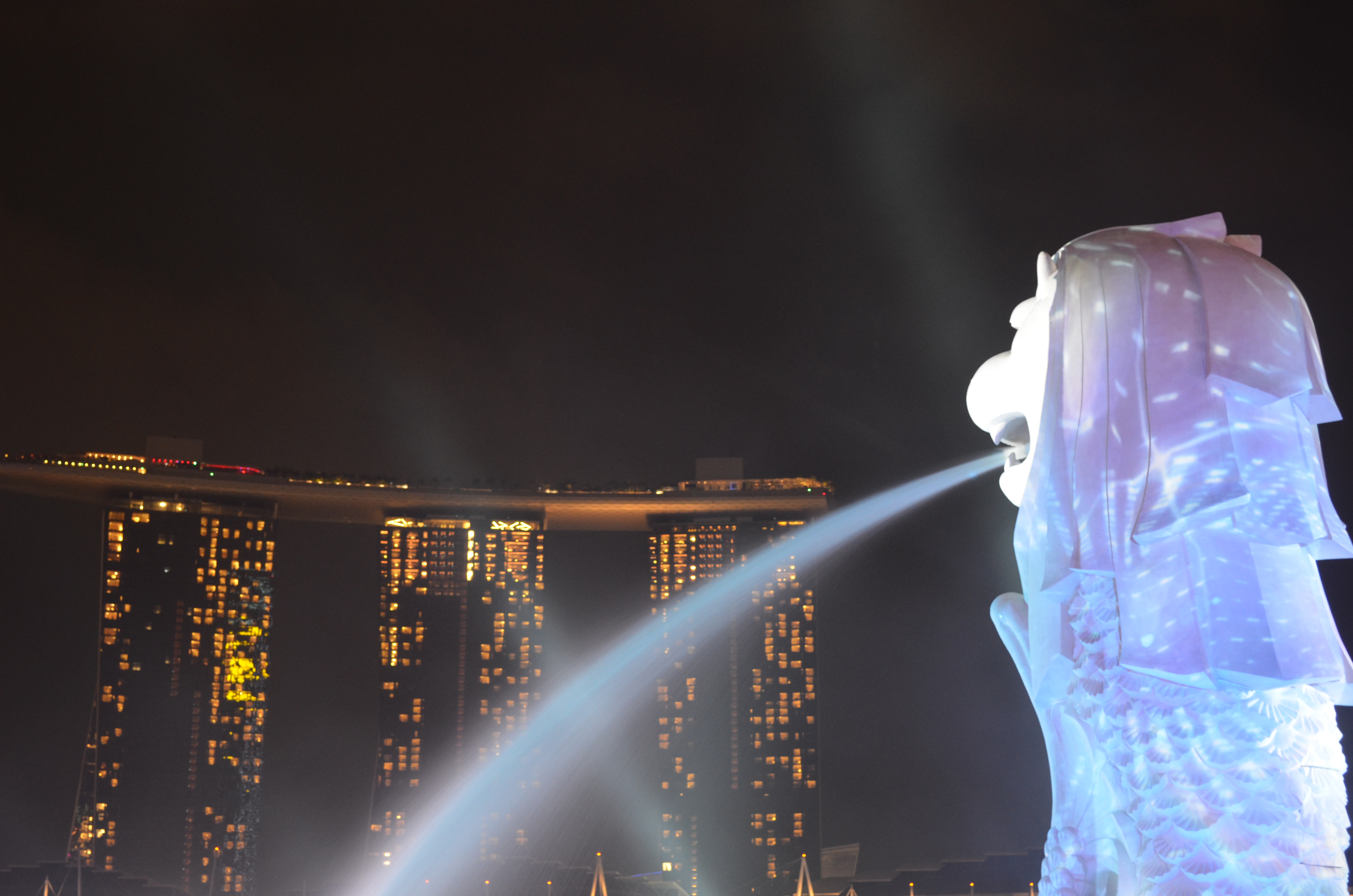I am bad at writing reviews. So I will spare everyone the technical details and go into how I felt about the Xiaomi MI-2 instead.
First of all, there is really much room for improvement in its packaging. When I showed it to a friend, he mentioned that it gives him the impression that this was something that fell from the back of the van. While I personally don’t place much emphasis on the aesthetic aspect of the device and its packaging, other consumers often felt otherwise.
Either way, I didn’t let the packaging bother me much. I went straight to getting the device and the accessories out of the box. It wasn’t any bigger than the Omnia 7 and one of my colleagues commented that it looked very much like an iPhone. It is of no wonder a friend working in China calls it an iPhone imitator when I asked him about this phone. Unlike the iPhone, it does not comes with a non-removable battery. So I had to open the back cover to insert the battery and simcard, which took me a long time even though it sounded pretty simple on the instructions in Chinese. In the end I used a small screwdriver to pry it open, placing extra care not to scratch or damage the surface. It then took me several days to master the technique to force it open with my bare hands but I didn’t really mind that since there are very little reasons for me open to back cover again after I have inserted the simcard and battery.
Once I got the set powered up, I noticed that it comes preloaded with the MIUI and Android 4.1.1 ‘Jelly Bean’. The interface is smooth and fast but that is expected since it’s a Quad-core device anyway. However, unlike most Android phones it did not come with the Google Apps (such as Google Maps, Google Play) pre-installed. There’s also a whole bunch of other apps that came bundled with the set. For e.g. Weibo, which I believe is China’s equivalent of Twitter and Mobile QQ, probbaly China’s main instant messaging software. I uninstalled a few and there didn’t seem to be any ill effects on the phone so I guess it is safe to uninstall them all if you don’t want them to be around. The only app I think shouldn’t be uninstall as yet would be the default ‘MI Market’ app. After all, I used it to find and install the Google Apps. In fact, I was able to find the other common apps like Facebook, Twitter, Google Plus, Foursquare etc without much of a fuss even before I installed Google Play. I had only decided to install Google Play as well, because it’s “the devil I am familiar with”.
By the way, just don’t install any apps right away just like I did above because the GPS (or the location services) “doesn’t work”. Very often it either does not pick up my location, and when it does it tells me that I am in a city called Hefei somewhere in the Anhui Province of China. According to what I read on the MIUI forum, the reason is that the default ‘location provider’ in MIUI is set to Baidu. For those who intend to download the customises MIUI ROMs for their own devices, please take note of the solution posted here on the MIUI forum. Unfortunately, it isn’t that straight forward for the MI-2 because I had to wipe the pre-loaded JLB30 ROM in the handset and reload it with something called the “Development ROM” (v 2.11.9) before I can apply the above solution. The reason being that the 2.11.9 ROM basically allows you to gain root permission simply by enabling it, while that feature is disabled on the JLB30 ROM. For the less tech savvy and those who just want something that can be used out of the box, this can be extremely frustrating. I am not sure if the guide to flash (or update) the set with a new ROM is available in other languages but I found my way around using the Chinese instructions. Even when I believed myself to be moderately tech savvy, it took me some time to figure out the technical terms in Chinese before I get down to updating the ROM. (It is sad I am turning into a “banana-man” myself.)
Nevertheless, I managed to get that resolved. The location services now reports my current position correctly. In the process of getting this resolved, I noticed that with location services turned on, the 2000mAh battery loses half its charge roughly in 3 hours even though I had it fully charged. With the location services turned off, the battery survives pretty well in an environment whereby 2G/3G signals are stable. Even with WIFI turned on, it lost only 45% of its charge after 23 hours primarily on standby with some short calls, and light surfing in between.
As for surfing, I cannot really tell whether the set is faster or better as the 3G services in Singapore is really cranky, if not deplorable. In fact, I still get the same bad 3G performance at what I would call a ‘3G dead zone’ in Jurong Point. On the MRT during the morning and evening rush hours, it can also be bad depending on which stretch of the tracks you are on. Basically, I experienced the same agony on the MI-2 just as I did on my Galaxy Tab 10.1 and also my old Omnia 7 at the usual places. I have come to the conclusion that the web surfing experience on any handset is primarily determined by the service provider and my take is that all three of Singapore’s service providers fell short because I had 2 handsets (a Blackberry from the company) and a Galaxy Tab tablet which allowed me to swap the simcards between them just to verify it isn’t a device specific issue. Even though subscribers may not get the same shitty experience at the same location from all three providers, the fact is that it shouldn’t even be happening constantly and without fail at specific locations for specific providers! That is the reason why I didn’t go for a contract renewal and pay less for a ‘better’ 4G handset (as some would believe) from one the providers!
But more on the providers later… let me get on with the last thing I tested on the MI-2 – photo taking. Since I am not much of a cam whore I have not tested the front facing 2-megapixel camera. But I have taken a few with the 8-megapixel rear facing camera and by my standards the photos are actually quite good. In fact, I think the day photos and the macro features are way better but some of my friends said the photos at low light seems more grainy than the Omnia 7 I had used previously. I won’t debate that, since we all have very different appreciation of what is nice. I’ll just upload them here and let everyone judge for themselves.
[portfolio_slideshow]
So, that’s all about the MI-2 for now, and now return to my long rant about the local mobile providers. Let me explain also why I decided against a contract renewal. First of all, my 3G experience on my primary mobile provider (I will refrain from naming it) has gone from bad to worse. These days I spent more time clicking on refresh or staring at the blank screen instead of getting the data I need. It is my considered opinion that all of Singapore’s mobile providers simply didn’t have the capacity to serve all their subscribers because I often noticed that the signal strength from the base station is ok and yet no data is received on the device! I suspect a data cap is thus implemented in hope it would serve as a “brake” on a subscriber’s data consumption because providers did not find it not profitable to upgrade and maintain the equipment to match a demand which only spiked at specific locations during certain hours. Even though the cap presently doesn’t matter to me because my current usage didn’t exceed 2GB, I am in the opinion that I (and a lot of users) may actually consume more data had the provider’s service been up to par. It doesn’t take much brain cells to conclude that if I can download 3 web pages of the same size in the same time I have been waiting for that one page to download, I would have consumed more data collectively over the month. The current situation reminds me of those days when SingNet was the only Internet Service Provider (ISP) providing dial-up access to the Internet before Pacific Internet, and subsequently Cyberway (now StarHub) came around. The pricing was ridiculous and it was a long time before things become better – either due to a desertion of subscribers to competitors or perhaps SingNet finally made enough money from early adopters to finance their equipment upgrades.
In any case, I am sick of Singapore’s way of running things – be it public transport, tele-communications, and even public housing – in which making huge profits is the management’s only overriding priority. I refused to upgrade to a 4G handset and even downgraded my plan to a cheaper one because I am sick of being an early adopter and sucker who pays a premium to a local provider so it can finance its future upgrades to meet demand which it already knew exists based on its current subscriber base. The management of certain companies in Singapore, along with our political leadership, ought to understand that we are willing to accept some pains and pay for the future in the old days, that was because our country were less well off back then. Now with the astronomical profits made by all these companies every year, it’s hard to make us accept it anymore. Just because some of these services are basic necessity that we need to use everyday, doesn’t mean we should be subjected to exploitation by some companies, especially when they are clearly linked to the government some what.
I hate being fleeced like sheep. Enough is enough already!










